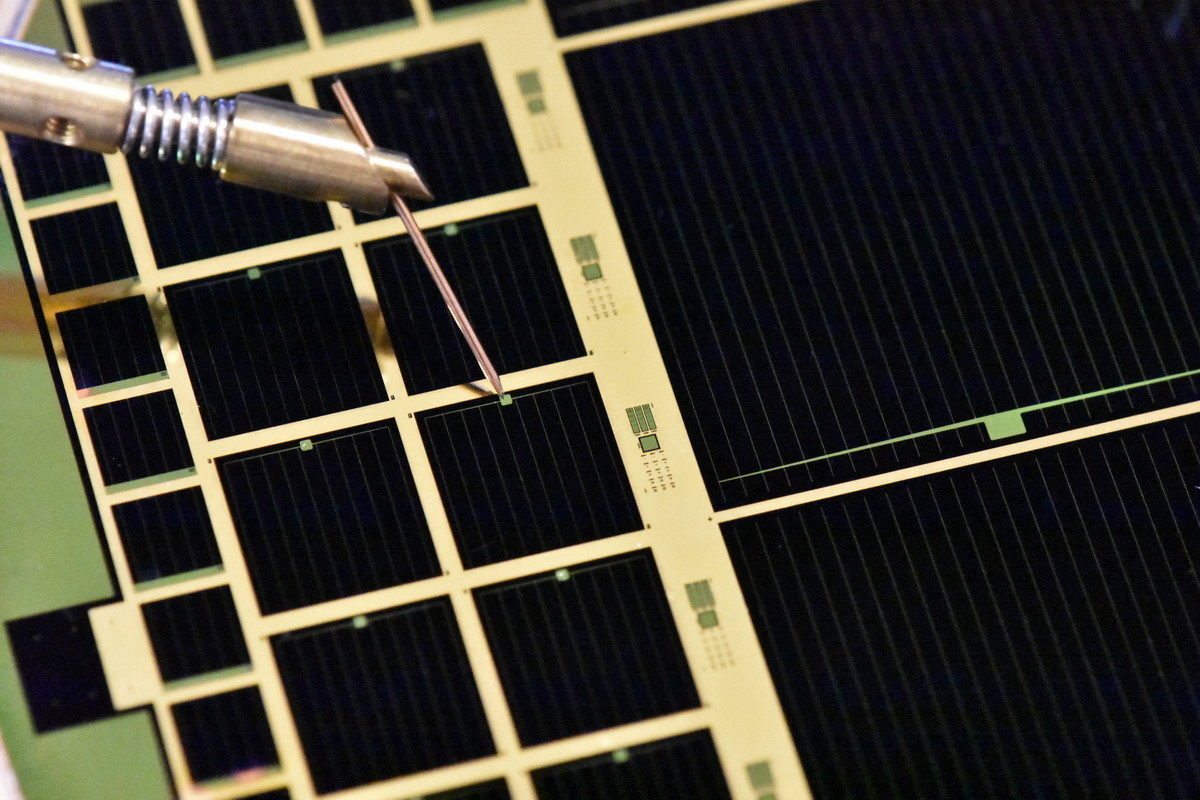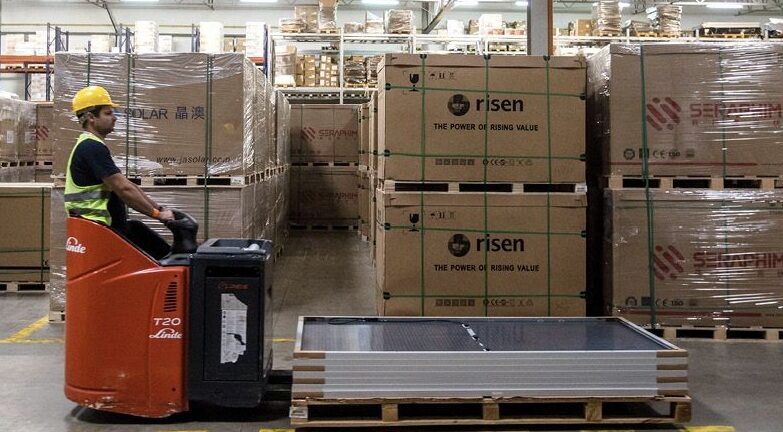Illinois, U.S.-based Microlink Devices has announced a new efficiency record of 37.75% for cells based on its three junction epitaxial lift off (ELO) technology.
The cell was tested under industry standard irradiation conditions (AM1.5g) using a solar simulator, and the efficiency record has been confirmed by the U.S. National Renewable Energy Laboratory (NREL). Microlink also states that the cell achieved a power density of more than 3,000 W/kg, a world record for any cell technology.
Microlink’s ELO production process involves the peeling off of thin active cell layers from a gallium arsenide substrate, and is combined with multi junction technology, integrating three or more semiconductor layers, developed by NREL, to achieve the very high efficiencies demonstrated.
Microlink has signed an exclusive deal with NREL for the commercialization of the technology. While the company points out that the substrates made from costly gallium arsenide can be reused to keep costs down, it is unlikely the cells will be cheap enough for application outside of UAVs, satellite and other areas requiring very lightweight solar cells.
“We are continuing to push the limits of what can be achieved with the ELO technology,” says Noren Pan, founder and president of Microlink Devices. “”Our triple-junction IMM ELO solar cells combine the highest efficiency with the lowest mass density of any solar cell technology available today.”
The company has also provided its technology to Airbus Defence and Space, and it is used to power the Zephyr HALE, a solar powered unmanned air vehicle which has set several records for uninterrupted flight without refueling.
This content is protected by copyright and may not be reused. If you want to cooperate with us and would like to reuse some of our content, please contact: editors@pv-magazine.com.




2 comments
By submitting this form you agree to pv magazine using your data for the purposes of publishing your comment.
Your personal data will only be disclosed or otherwise transmitted to third parties for the purposes of spam filtering or if this is necessary for technical maintenance of the website. Any other transfer to third parties will not take place unless this is justified on the basis of applicable data protection regulations or if pv magazine is legally obliged to do so.
You may revoke this consent at any time with effect for the future, in which case your personal data will be deleted immediately. Otherwise, your data will be deleted if pv magazine has processed your request or the purpose of data storage is fulfilled.
Further information on data privacy can be found in our Data Protection Policy.